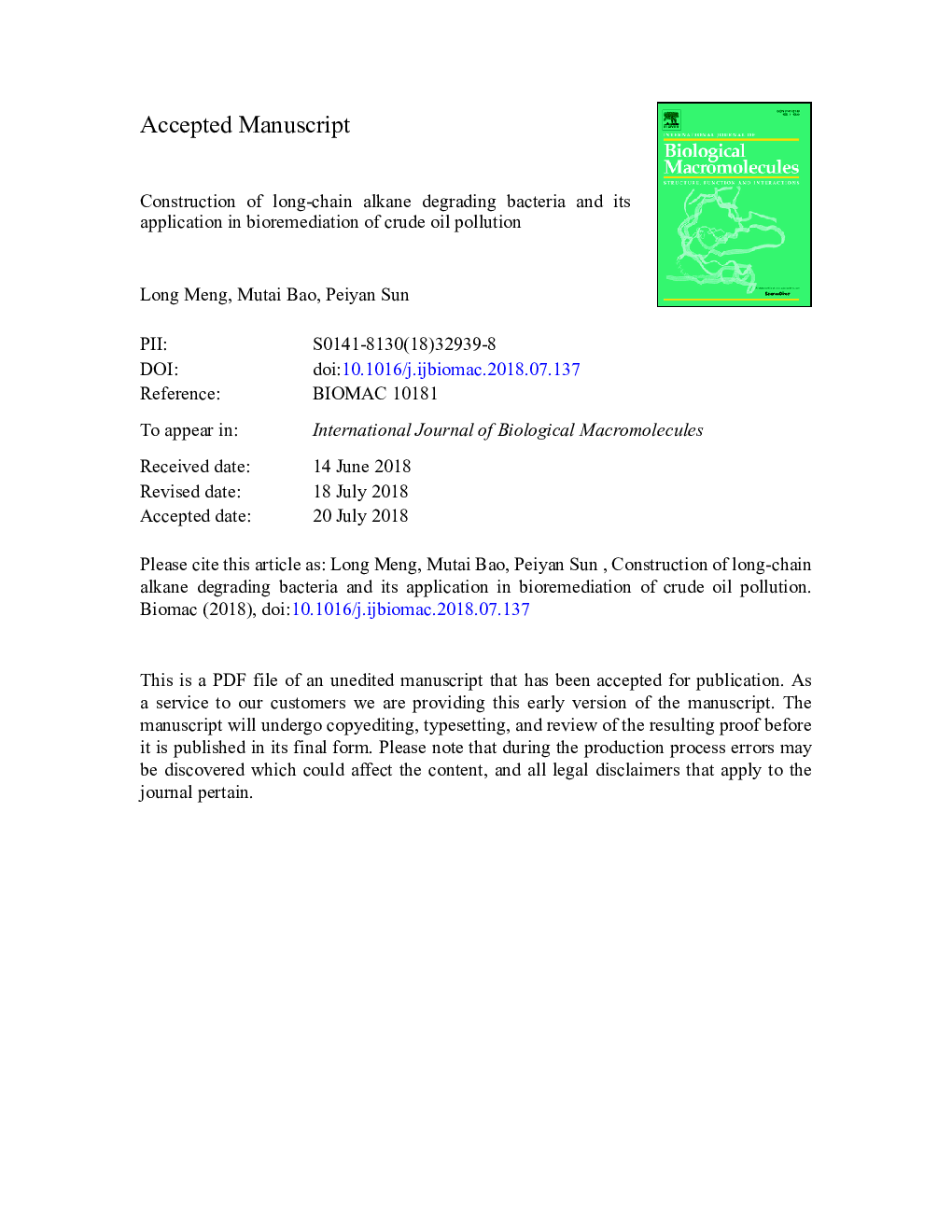| Article ID | Journal | Published Year | Pages | File Type |
|---|---|---|---|---|
| 8326768 | International Journal of Biological Macromolecules | 2018 | 40 Pages |
Abstract
In this study, a cloned almA gene was inserted into two plasmids PUC57 and pet-28a (+), and then transformed into Escherichia coli competent strains. The presence of almA was confirmed by PCR combined with restriction enzyme digestion. The results indicated two strains of PUC57/almA-E. coli and pet-28a (+)/almA-E. coli were all functioned on biodegradation long-chain alkanes, however, pet-28a (+)/almA-E. coli strain performed better and the speed of biodegradation was enhanced to about 12â¯mgâ¯Lâ1â¯hâ1 when compared with PUC57/almA-E. coli strain. Furthermore, degradation degree of n-C32 was much higher than other long-chain alkanes for two engineered E. coli strains. Our results further suggested that exoenzyme was only detected in pet-28a (+)/almA-E. coli and followed a decreasing order of extracellular enzymeâ¯>â¯intracellular enzymeâ¯>â¯periplasmic enzyme. Besides, co-biodegradation of petroleum hydrocarbons by Pseudomonas sp. B-1, Bacillus subtilis PH-1 with exoenzyme or pet-28a (+)/almA-E. coli posed enormous potential that could reach 70%-80% in oil pollution bioremediation.
Keywords
Related Topics
Life Sciences
Biochemistry, Genetics and Molecular Biology
Biochemistry
Authors
Long Meng, Mutai Bao, Peiyan Sun,
